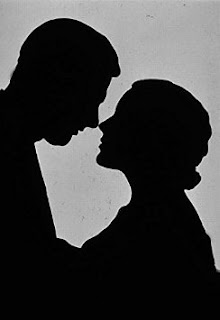It’s often said, and I will confirm
it, that writing is a lonely profession and every author suffers major stage
fright when releasing a new book. You’ve spent months, maybe years, pouring out
your soul, ripping out your heart, and you finally feel you’ve written the book you
wanted to write.
Until that moment comes when … in my
case, since I self-publish through Amazon’s CreateSpace … you stare at your
monitor at that box, “Publish My Book” and wonder if it’s really ready. It’s
kind of like sending your kindergartner off on his first school bus trip on his
first day of school.
Then you wait, and one of the most
gratifying experiences an author can have is reading thoughtful, complimentary reviews.
I’m thrilled to say Jamie’s Children
has received a few, and since I believe these compliments are mostly for Laura
and Niall and their dad, I’m sharing in this blog post.
Here are a couple. There are more, and I’d love for you to visit the book page and read them. People are finding this a book worth reading, and of course I am posting in the hopes the person
reading this right now might decide to give it a try!
An Opus for the Ages, July 24, 2016
By
Jamie’s Children is a marvelous story of love, loss, adventure,
and hope in which author Susan Moore Jordan paints a diverse cast of nuanced,
relatable, and real characters. I came to love Niall and Laura — Jamie’s
Children — within the first few chapters as they wrestled with a search for
meaning in their lives.
While I would recommend this book to anyone, it is perfect for those with a love of music. Jordan’s ability to convey the subtleties of classical violin and piano, as well as contemporary guitar, is nothing short of masterful. The reader gets the experience of a backstage pass to Carnegie Hall and finds that the musicians up on stage are people too, with hopes and dreams just like the rest of us. By the end of the book I was ready to turn back time and become a classical pianist myself! A must read.
While I would recommend this book to anyone, it is perfect for those with a love of music. Jordan’s ability to convey the subtleties of classical violin and piano, as well as contemporary guitar, is nothing short of masterful. The reader gets the experience of a backstage pass to Carnegie Hall and finds that the musicians up on stage are people too, with hopes and dreams just like the rest of us. By the end of the book I was ready to turn back time and become a classical pianist myself! A must read.
A Mosaic of Music and More, August
29, 2016
By
"Jamie's Children" is a novel that's VERY enjoyable and
often touching -- even as author Susan Moore Jordan threads in all kinds of
serious topics: mental illness, death, the struggle to emerge from the shadow
of a celebrity parent, the struggle to have a satisfying private life when one
is in the public eye, etc. Interspersed with all that is a fascinating look at
the characters' relationship to music: Jamie and his internationally famous
opera singing, daughter Laura and her virtuoso violin performances, son Niall
and his acoustic guitar-playing and songwriting. Ms. Jordan clearly knows her
music! Also impressive is the way the author has the novel bounce back and
forth in time (between 1986 and 1990) and shift geographical locales --
including New Jersey, New York, Colorado...and readers' hearts.
NOTE: the Kindle edition of Jamie’s Children is currently available for $0.99. Sale runs from September 6 through September 8.



